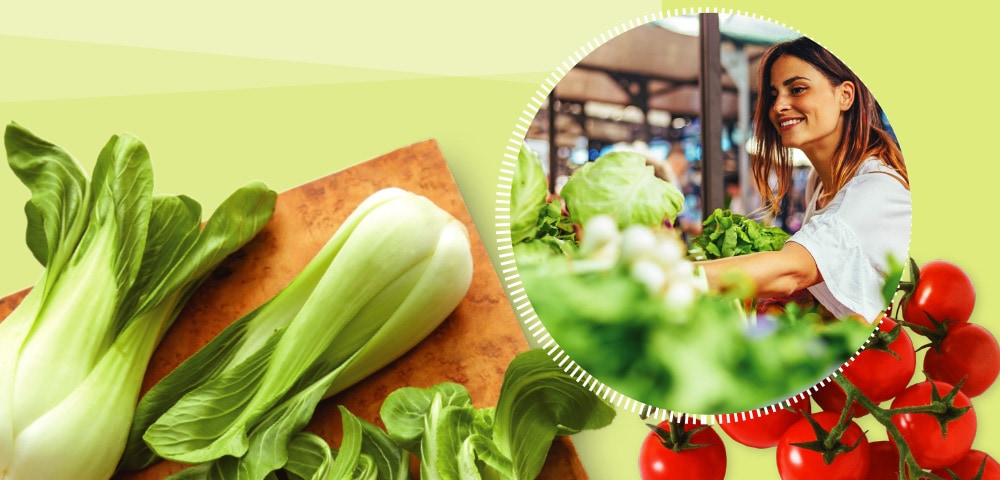
What is your definition of healthy food? For me and my patients, this topic has been so wildly misconstrued in today’s supermarket culture. Time and time again, I find that my patients do not have a firm understanding of what makes certain foods healthy or unhealthy, especially as relates to a vegan or plant-based diet.
It’s vital to read labels
First, I want to acknowledge that a big reason for the confusion surrounding natural foods is that more people are looking for healthy foods to fuel an active lifestyle, especially as they age. Of all the topics trending, how wonderful is it that health and well-being are at the top of the list? The problem is, corporations that don’t always produce healthy foods capitalize on this trend by adding false packaging claims – like “natural,” “vegan,” “light,” or “diet” – on products that are not healthy to boost sales. As such, labeling unhealthy foods becomes confusing to the consumer.
Believe it or not, it is perfectly legal for Cheetos to be labeled as “natural” and Oreo cookies as “vegan.” My hope is that we can all agree that neither product is a healthy choice to eat.
Before we go any further, I must emphasize two highly scrutinized labels that are in reality 100% legitimate: organic and non-GMO. These labels are accurate and regulated, and they have meaning for us and for the health of our planet.
Believe it or not, it is perfectly legal for Cheetos to be labelled as “natural” and Oreo cookies as “vegan.” My hope is that we can all agree that neither product is a healthy choice to eat.
What are junk food vegans?
The issue with labeling, coupled with the rise in plant-based eating, has led to the rise of a term called “junk food vegans.” These are people who strictly follow a plant-based or vegan diet, but don’t eat healthy food at all. People typically start down this path because they hear of the reported health benefits of eating plant-based foods, but they end up with a diet that is full of added sugars, high in bad fats and sodium, and based primarily on processed foods.
This is where it becomes necessary to stress that just because a label says vegan, it doesn’t mean it’s healthy. A trip to your local grocery store will show you the number of products promoting that they’re vegan or plant based. These can range from mock meats, frozen dinners, and baked goods, to ice creams, cheese, butter, and even yogurt.
But, Dr. Marita, how can we be sure the food we’re eating is really healthy?
Believe it or not, it’s actually very simple. Like with any diet, processed foods should be kept to a minimum for good health. Also, I am a big advocate for eating whole, organic, non-GMO foods. The rule of thumb is, the closer it is to how it came out of the earth, the better. Think fresh fruits, vegetables, nuts, seeds, legumes, beans, whole grains, non-GMO, and organic. As such, a healthy plant-based diet includes a wide variety of wholefoods, with other foods sitting in the realm of a once-in-a-while treat.
Is a vegan or plant-based diet for everyone?
The other thing to consider as we see the rise in vegan and plant-based eating is that it isn’t for everyone. As a naturopathic doctor, I see many patients who are thriving on a plant-based diet, and I also see those who aren’t. For some, a vegan diet has led to a lower risk of heart disease and diabetes, weight loss, increased energy, and better digestion. But I have also seen patients whose health suffered from removing animal products from their diet.
The moral is, each body is unique, and there is absolutely no one-size-fits-all approach to eating. You can also adopt a more moderate way of incorporating more plant-based meals into your life, allowing for a more diverse and versatile diet overall.
What else is there to consider when eating a plant-based diet?
Specific vital nutrients, like iron and vitamin B12, can be challenging to get from a plant-sourced vegan diet. If you’re making the switch to an all plant-based regimen, I recommend that you do a lot of research or consult with a health professional to design a diet or supplementation plan that accommodates all of your dietary needs.
What about the environmental impacts of plant-based eating?
Many people choose a plant-based diet because of the reported environmental benefits. However, it’s important to keep in mind that large-scale industrialization and food production create an enormous negative footprint. If the planet’s health is a concern, supporting local farmers’ markets and natural health stores (that source locally) can make a difference. Small-scale organic farming regenerates the soil and can substantially mitigate climate change. This way we can support both healthy bodies and a healthy planet.












